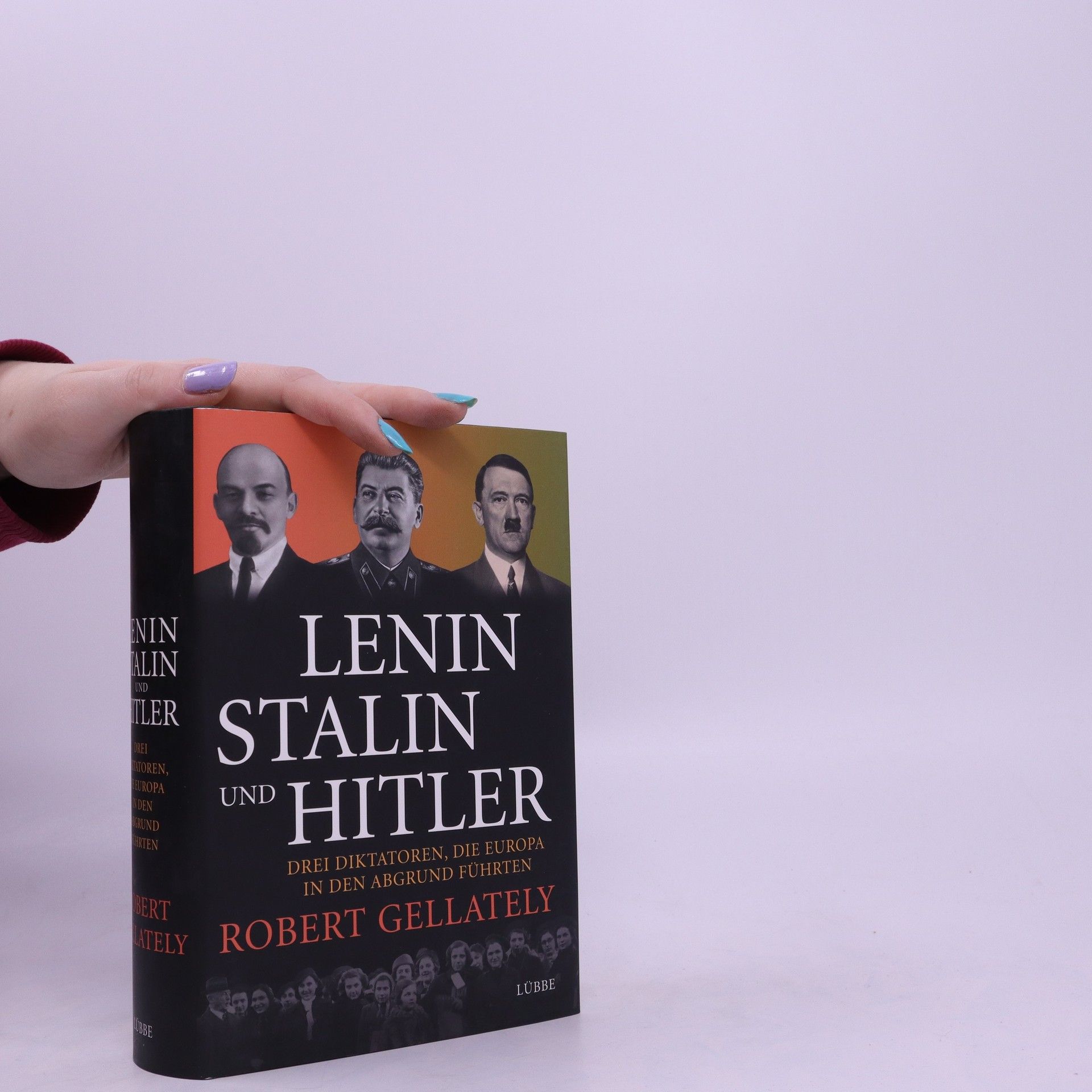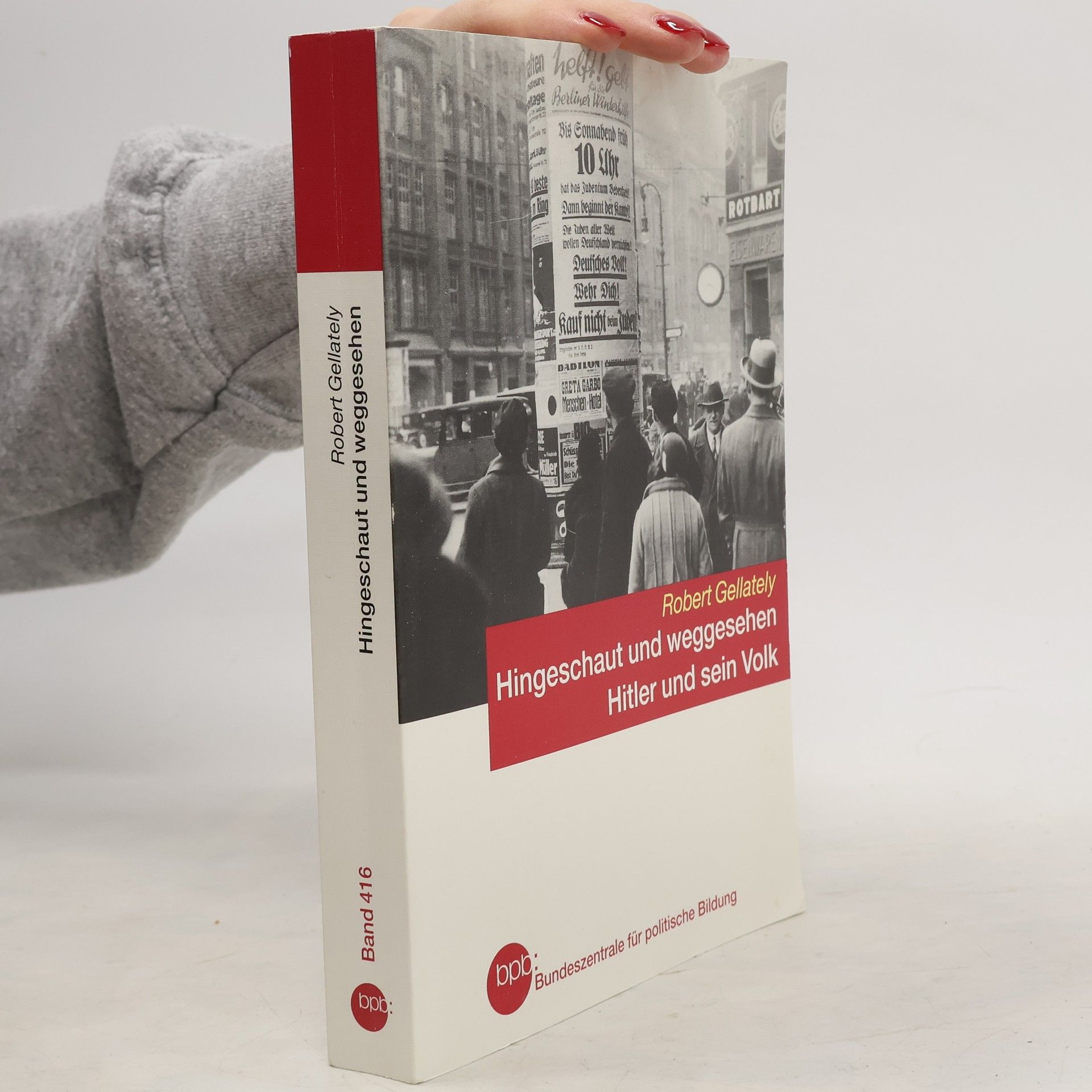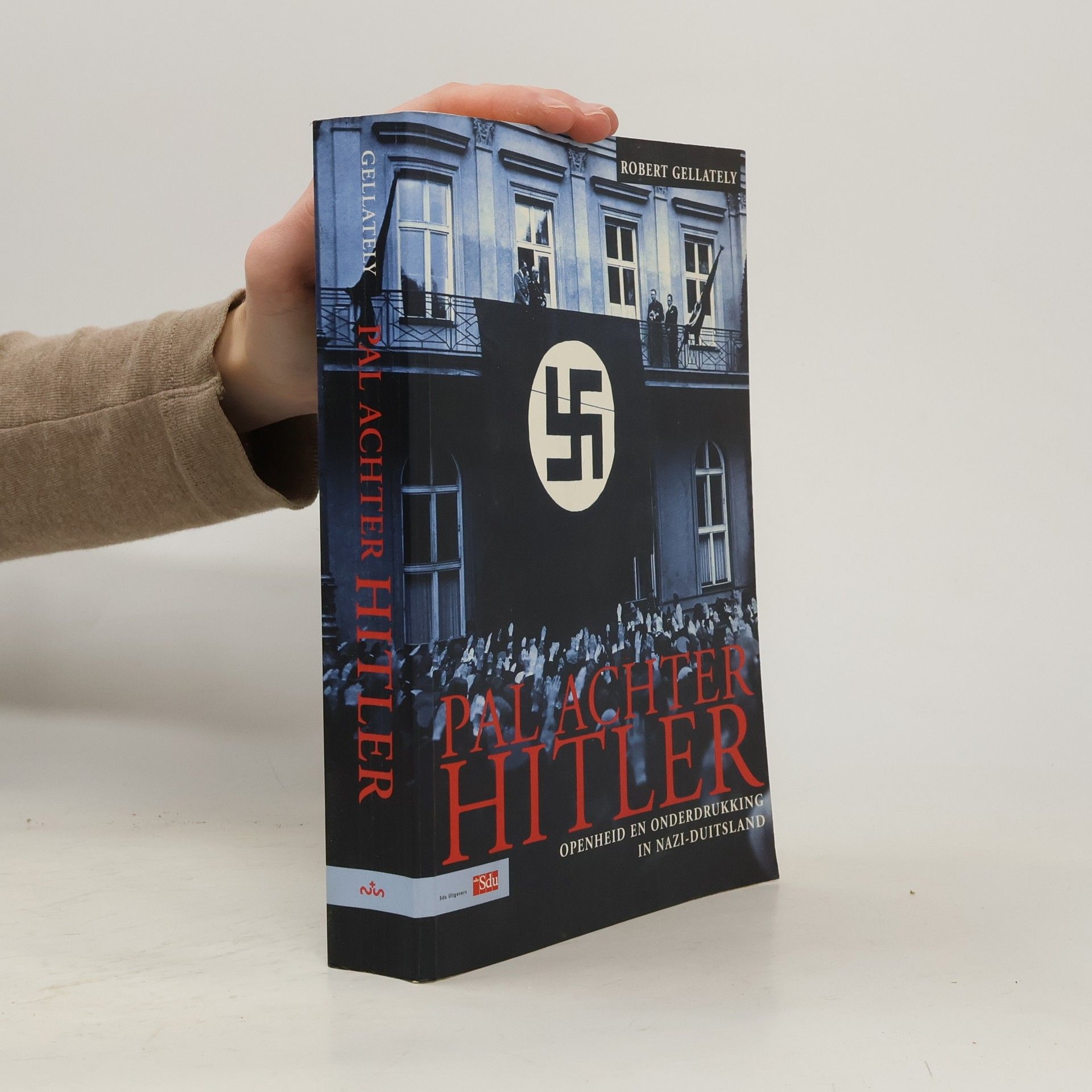The book offers a daring analysis of the significant social and political transformations in Europe during the tumultuous years from 1914 to 1945. It covers pivotal events such as the Russian Revolution and the Second World War, exploring the interconnectedness of these upheavals and their impact on European society. Through a comprehensive examination, it sheds light on the forces that shaped modern Europe during this critical period.
Robert Gellately Libros
Robert Gellately es un destacado historiador de la Europa moderna, enfocado particularmente en las épocas de la Segunda Guerra Mundial y la Guerra Fría. Su extenso interés en el Holocausto también lo ha llevado a investigar otros genocidios, para los cuales mantiene estrictas directrices definitorias. El trabajo de Gellately profundiza en las dinámicas de poder, consentimiento y coerción dentro de los regímenes totalitarios. A través de análisis a menudo basados en documentos originales y testimonios, su erudición desafía las narrativas históricas simplificadas, enfatizando los complejos procesos sociales y políticos.


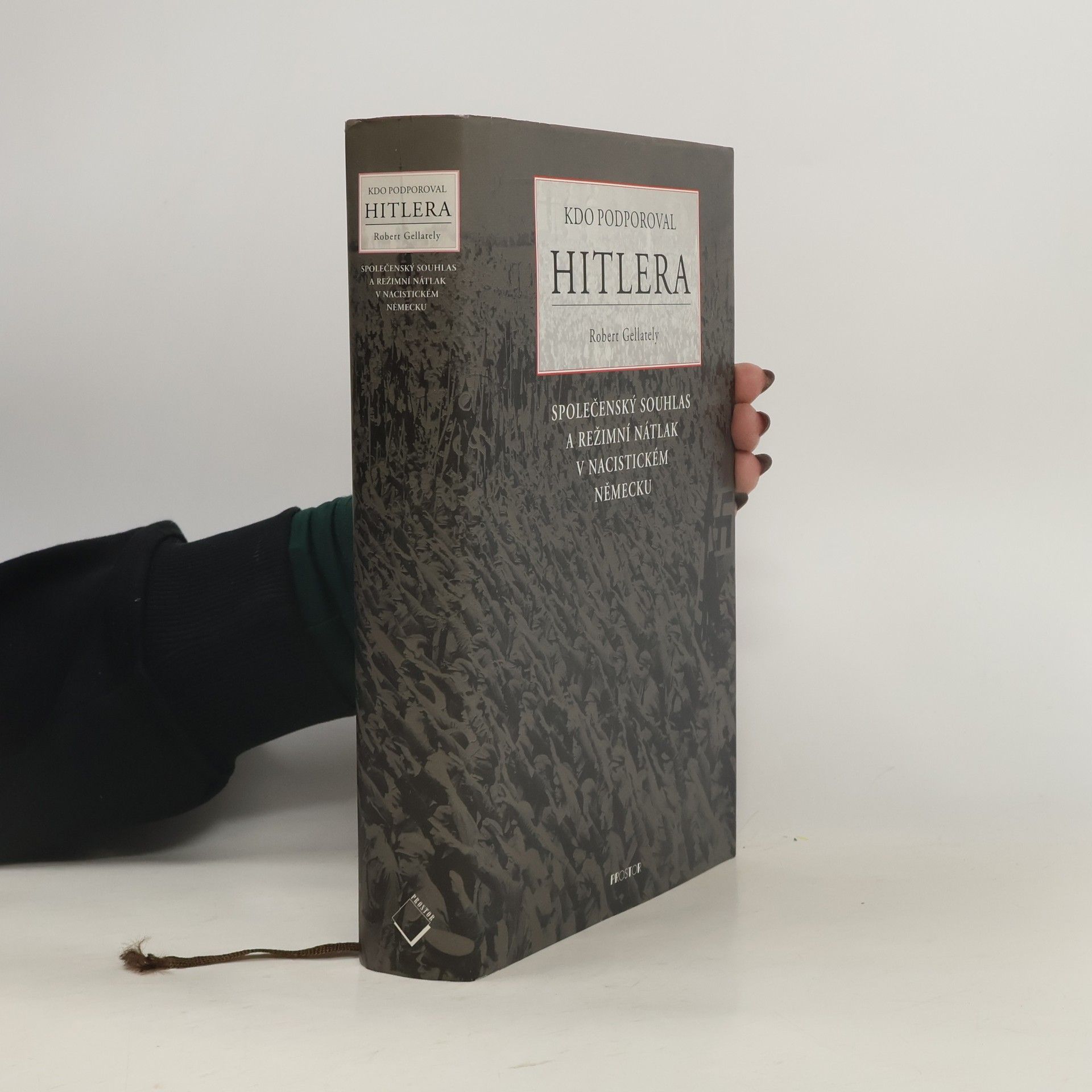
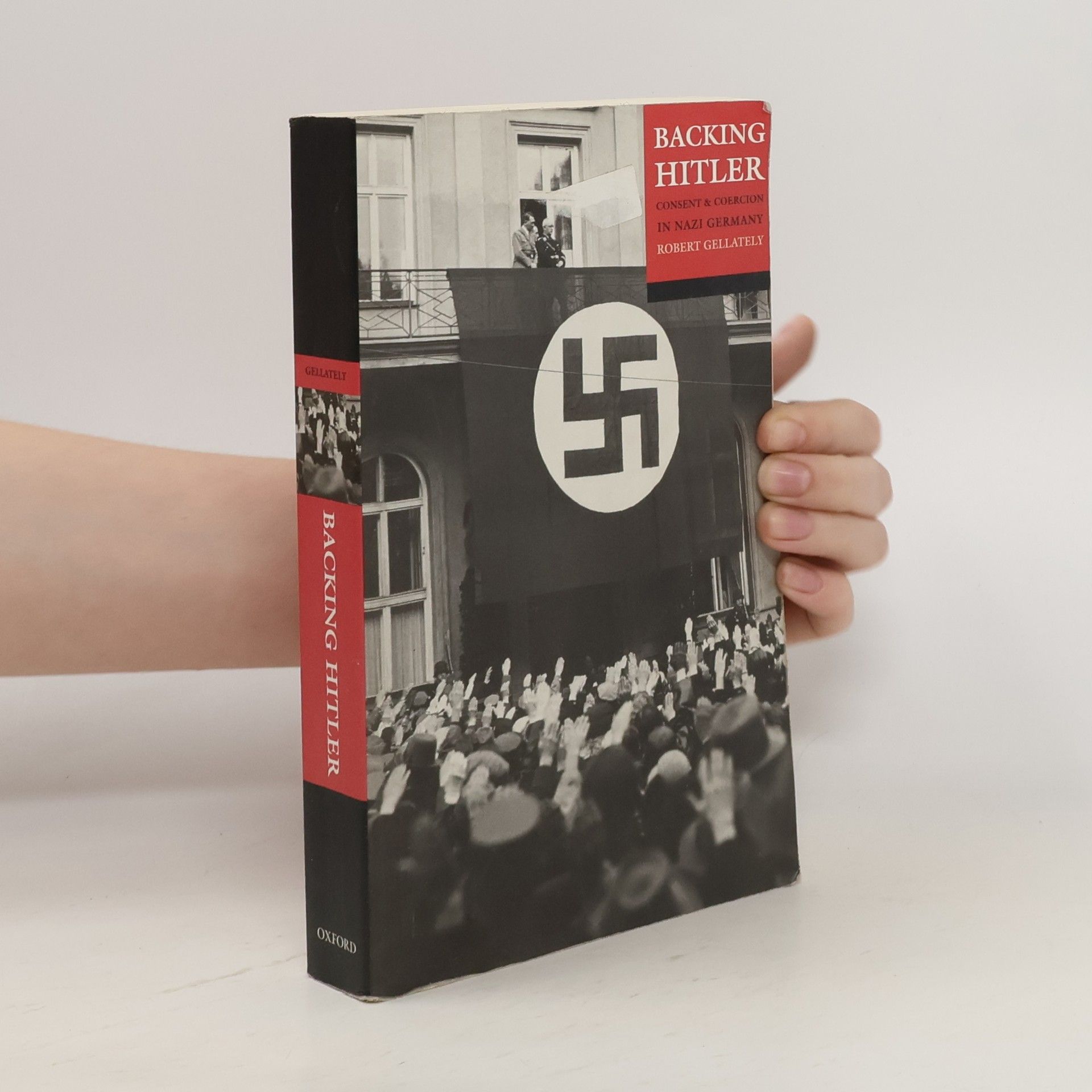

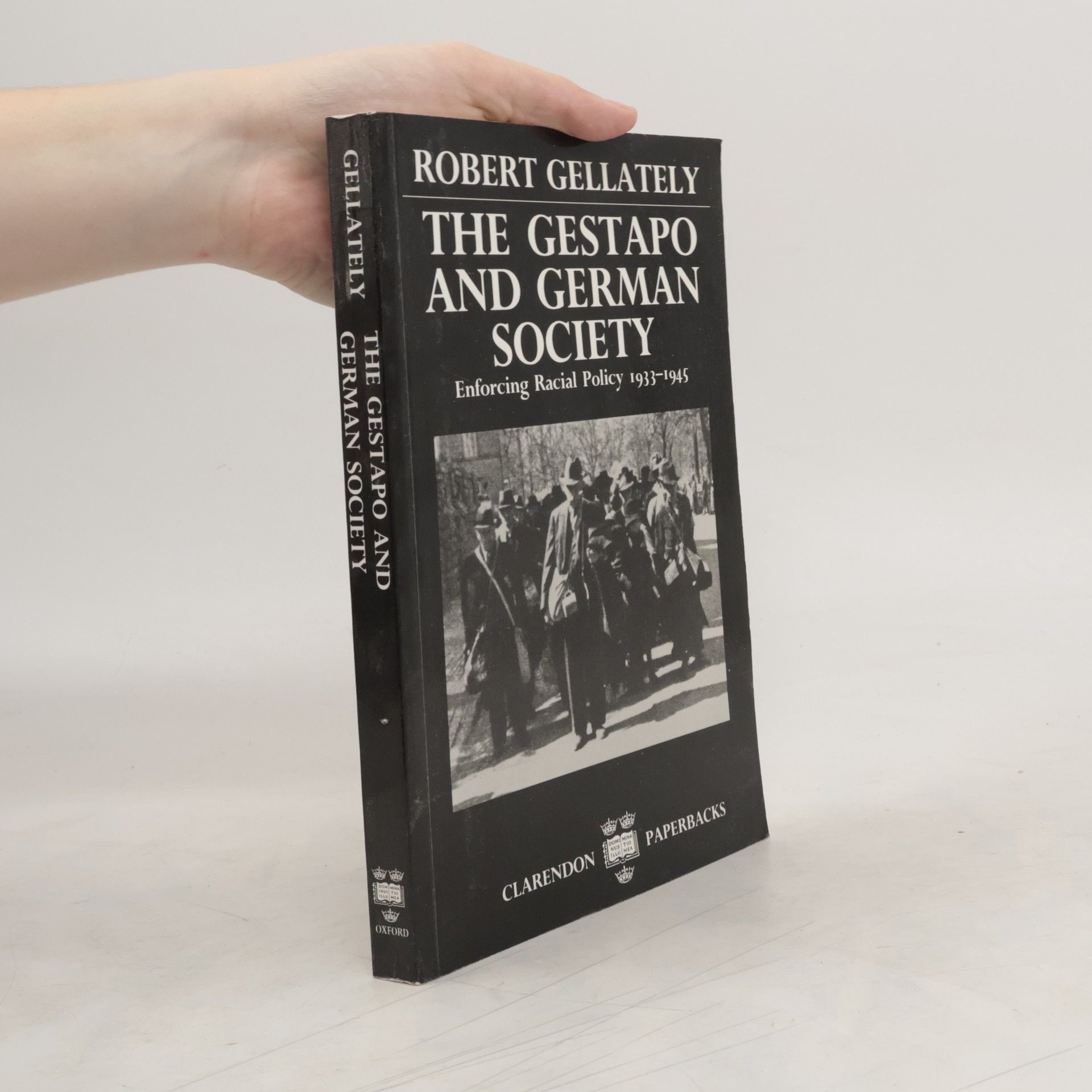

This book examines the everyday operations of the Gestapo, the Nazi secret police. How were the Gestapo able to detect the smallest signs of noncompliance with Nazi doctrines, especially 'crimes' pertaining to the private spheres of social, family, and sexual life? How could the police enforce policies such as those designed to isolate the Jews or foreign workers with such apparent ease?
Hitler's True Believers
- 448 páginas
- 16 horas de lectura
Nazi ideology drove Hitler's quest for power in 1933, colored everything in the Third Reich, and culminated in the Second World War and the Holocaust. In this book, Gellately addresses often-debated questions about how Fuhrer discovered the ideology and why millions adopted aspects of National Socialism without having laid eyes on the leader or reading his work.
Backing Hitler
- 378 páginas
- 14 horas de lectura
Robert Gellately challenges the belief that the German people knew little about the Nazi terror, and the tendency of historians to distance ordinary Germans from its excesses. He reveals for the first time the social consensus behind the regime and the extent to which German men and women were involved in the persecution of social outsiders and 'race enemies'.
Kdo podporoval Hitlera. Společenský souhlas a režimní nátlak v nacistickém Německu
- 382 páginas
- 14 horas de lectura
Podtitul: společenský souhlas a režimní nátlak v nacistickém Německu Budování a fungování represivního aparátu třetí říše. Komunikace státních orgánů s veřejností. Ideologie a propaganda. Celospolečenská podpora nacistické politiky. Studie. Každodenní život německé společnosti v l. 1933-1945. Přeměna demokratických struktur směrem k nacistické totalitě. Veřejné mínění a jeho cílevědomé ovlivňování. Rozšiřování podpory nacistů ve společnosti. Represe a teror ve jménu "očisty" společnosti. Vláda "silné ruky" jako jediná možnost obnovení mezinárodní prestiže a hospodářské prosperity.
Lenin, Stalin a Hitler: Věk sociální katastrofy
- 799 páginas
- 28 horas de lectura
Tato působivá kniha vrhá světlo na velké sociální a politické katastrofy, které zmítaly Evropou mezi lety 1914 a 1945. V periodě téměř nepřetržitých sociálních otřesů byly dějiny kontinentu poznamenány dvěma světovými válkami, ruskou revolucí, holocaustem a vzestupem a pádem Třetí říše. Ústředními postavami této katastrofy byli samozřejmě Lenin,Stalin a Hitler a tato kniha využívá nedávného zpřístupnění ruských a německých archívů, aby ukázala, jak úsilí těchto diktátorů o naplnění utopických a nenapravitelně scestných ideálů vedla jen k dystopické noční můře. Renomovaný historik Robert Gellately dospívá k závěru, že většina srovnávacích studií sovětské a nacistické diktatury je negativně poznamenána přehlížením Leninovy role v celém dramatu. Odmítáním mytologie „dobrého“ Lenina kniha načrtává přesvědčivý společensko-historický obraz role těchto tří diktátorů a pečlivě dokumentuje jejich podobnosti i rozdíly. Sleduje eskalaci konfliktů mezi komunismem a nacismem, a to zejména na pozadí Hitlerova boje proti „smrtelné hrozbě židobolševismu“. Kniha dokládá, že nesmiřitelné nepřátelství mezi Stalinem a Hitlerem nevyhnutelněmuselo vést k totální válce a genocidě. Důsledky tohoto osudového střetu jsou patrné ještě dnes.
Co sprawiało, że zwykli Niemcy stawali się gorliwymi zwolennikami Hitlera? Jak niewielka partia NSDAP przekształciła się w masowy ruch polityczny? Mimo początkowych porażek wyborczych, zdołała zgromadzić ogromne społeczne poparcie. Autor poszukuje odpowiedzi na te pytania, opierając się na różnorodnych źródłach, w tym na bogatym materiale archiwalnym. Rekonstruuje, jak krystalizowała się nazistowska ideologia oraz opisuje przyczyny gromadzenia się różnych grup społecznych wokół NSDAP. Zachęca czytelników, by spojrzeli na idee i program nazistów jako konkretne obietnice dla niemieckiego społeczeństwa, a nie jako irracjonalną mieszankę absurdalnych pomysłów. Bada, które komponenty były decydujące dla powszechnej akceptacji polityki Hitlera. Ukazuje, jakie elementy kultury politycznej Niemiec sprzyjały temu, że nazistowska synteza skrajnie nacjonalistycznej, rasistowskiej i socjalistycznej retoryki znalazła tak szeroki oddźwięk. Robert Gellately, kanadyjski historyk, specjalizuje się w dziejach XX wieku, w szczególności w totalitaryzmie nazistowskim i sowieckim. Jest wieloletnim wykładowcą Florida State University oraz autorem wielu prac, w tym "Stalins Curse".
Zwei Weltkriege, die russische Revolution, Aufstieg und Fall des „Dritten Reichs“, der Holocaust - zwischen 1914 und 1945 brechen große politische Katastrophen über Europa herein und verändern die Gesellschaft von Grund auf. Im Zentrum der Katastrophen stehen drei Diktatoren: Lenin, Stalin und Hitler. Während über die Verbrechen und Grausamkeit der Letztgenannten Einigkeit besteht, wird Lenin bisweilen als „guter Gründungsvater“ eingeschätzt. Zu unrecht. Der renommierte Historiker Robert Gellately beweist in seiner Studie Lenins verheerende Rolle für die jüngere Geschichte und liefert damit den Schlüssel zu einem besseren Verständnis des großen Weltenbrands.
Kort nadat Hitler in 1933 in Duitsland aan de macht was gekomen, begon men met de aanleg van concentratiekampen om de vijanden van het Nazi-regime te onderdrukken. Ook werd de Gestapo opgericht om uitvoer te geven aan de ideeën van het nieuwe bewind. Hoewel Hitler niet door een verkiezingsoverwinning aan de macht was gekomen zag hij kans om in korte tijd het Duitse volk massaal achter zich te krijgen. Hoe kon dat en in hoeverre waren de Duitsers op de hoogte van de plannen van de Führer? In Pal achter Hitler toont Robert Gellately aan de hand van uitgebreid onderzoek in Duitse kranten en archieven aan dat het Duitse volk in de jaren dertig niet alleen goed op de hoogte was van de moorddadige praktijken van de Nazi's, maar ook dat veel Duitsers actief deelnaam aan de uitvoering ervan. De gehele Duitse samenleving werd doordrongen van het Nazisme en vrijwel iedere Duitser werd via kranten, radio en diverse manifestaties goed geïnformeerd over welke veranderingen zich vanaf 1933 in Duitsland afspeelden.
